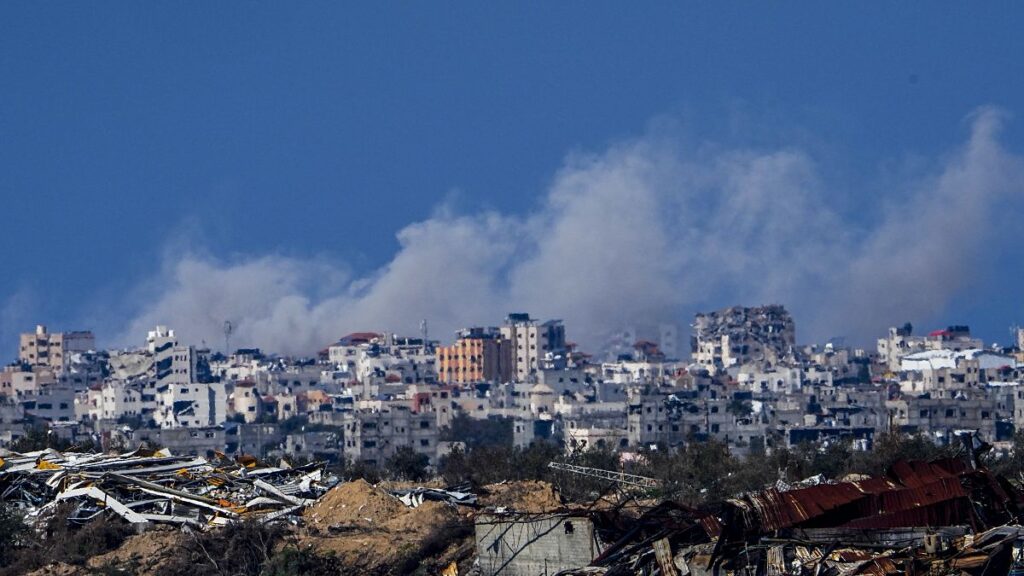The European Union on Saturday expressed its deep concern over reports that the Israeli army intends to take its battle against Hamas in the town of Rafah, on the Gaza-Egypt border, where more than a million people fled the fighting.
The EU’s top diplomat Josep Borrell has expressed fears over a possible Israeli offensive on the town of Rafah, as well as the risk of the conflict spreading across the region unless a ceasefire -fire is concluded between Israel and Hamas, after US airstrikes hit dozens of Iranian-backed militia and Iranian Revolutionary Guard sites.
EU foreign policy chief Josep Borrell said around one million Palestinians “were gradually moved towards the Egyptian border. They claimed that these were safe zones, but in reality, what we see is that the bombings which affect the civilian population continue and create a disastrous situation.”
Israeli Defense Minister Yoav Gallant said late last week that after Israeli troops seize the southern town of Khan Yunis, from where tens of thousands of people have fled, they will move towards Rafah.
Fears of an Israeli offensive on Rafah
Such an offensive could push refugees toward Egypt, undermining Israel’s peace deal with that country and angering the United States. It could also torpedo slow-moving peace talks with Hamas and complicate efforts to free many Israelis kidnapped when the militant group rampaged through southern Israel on October 7.
The prospect of a ground war in Rafah raised fears about where the population would go to find safety. The United Nations declared that the city was becoming a “pressure cooker of despair“.
Speaking in Brussels, where he chaired informal discussions between EU foreign ministers, Borrell said the war between Israel and Hamas had created “a domino effect“, with conflict also breaking out in Lebanon, Iraq, Syria and the Red Sea region.
“We are experiencing a critical situation in the Middle East, throughout the region“, did he declare. “As long as the war in Gaza continues, it is very difficult to believe that the situation in the Red Sea will improve, because one thing is linked to another.“
Belgian Foreign Minister Hadja Lahbib, whose country currently holds the rotating presidency of the EU, warned against “a real risk of the conflict spilling over“.”This is a huge concern. We ask for restraint, dialogue and diplomacy. This is the only way to calm the situation in the Middle East” she told reporters.
UNRWA in the unknown
After the meeting, Borrell also expressed concern about on the fate of the United Nations humanitarian agency working with the Palestinians, after 12 UNRWA personnel were accused of involvement in the October 7 attacks, leading the United States and others to withdraw funding for Gaza’s largest humanitarian aid effort. supplier.
Borrell said the majority of ministers present from the 27 EU countries believe UNRWA’s work is vital. While some countries have frozen their support, Borrell said other ministers have informed him that their governments will increase funding. He did not name them.




